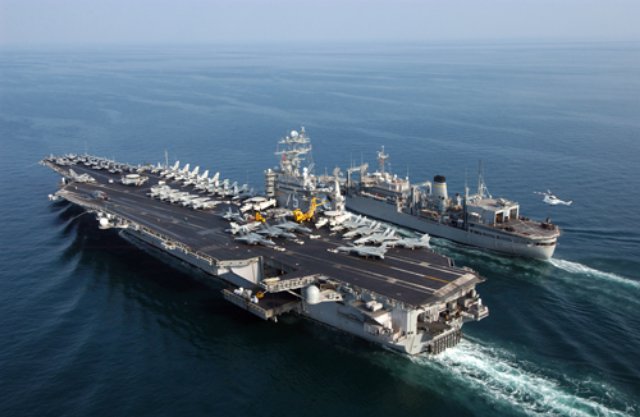 After a two-year delay, the US Navy expects to issue a Request For Proposals in 2013 for its Unmanned Carrier-Launched Surveillance and Strike (UCLASS). The goal is to have the aircraft in the fleet by 2020, said Patrick Buckley at a Nov. 9 conference on unmanned aircraft systems in Springfield, Va.
After a two-year delay, the US Navy expects to issue a Request For Proposals in 2013 for its Unmanned Carrier-Launched Surveillance and Strike (UCLASS). The goal is to have the aircraft in the fleet by 2020, said Patrick Buckley at a Nov. 9 conference on unmanned aircraft systems in Springfield, Va.
The road to establishing requirements for UCLASS has been fraught with debate, with officials in a tug-of-war on how advanced UCLASS should be, given fiscal and technological constraints.
“It has never been quite clear exactly what the requirements would be for the system,” said Phil Finnegan, director of corporate analysis for the Teal Group, a market research firm. “Obviously it’s a struggle between the latest and most capable and affordability.”
The Navy is in the final stages of nailing down those requirements, said Buckley, who offered a few hints of what the service would be looking for.
UCLASS will harness “mature” technology that has been demonstrated in relevant operational environments, as opposed to technology in very early stages of development, Buckley said. Bidders can propose commercial off-the-shelf or modified off-the-shelf components within their design, as well as new components that contain mature technology, he continued.
The project includes three segments: upgrades to carriers to support unmanned operations, the UCLASS aircraft and mission systems, and the command-and-control system. The Navy will be the lead systems integrator for the components, providing data and interface specifications to allow the contractor to deliver the air vehicle and mission systems, Buckley said.
Finnegan predicts contractors will offer systems based on existing platforms. For instance, Northrop Grumman will likely leverage technology from the Unmanned Combat Air System Demonstration (UCAS-D), which is being used by the Navy to understand how to best integrate unmanned systems onto an aircraft carrier. The Boeing Co., General Atomics and Lockheed Martin will draw from their experiences with the Phantom Ray, Avenger and RQ-170 Sentinel, respectively, Finnegan said.
“I would expect that the Navy is going to be careful about development costs,” he said. “It’s not going to want to push this technology too hard.”
The Navy will seek to avoid the pitfalls the Air Force fell into during the abandoned MQ-X programme, which was cancelled after the service could not strike a balance between the desired requirements for the aircraft and a constrained budget.
Finnegan said it’s hard to say if a similar fate awaits the UCLASS programme. In the current budget environment, he said, all new starts could be vulnerable.
At the very least, the programme could see another delay as a result of fiscal pressures and possible technical issues, he said. “If you look at what happened in the 2013 defence budget request, even high priority UAS programmes got cut, and the UCLASS got pushed out two years.”
He expects all UCLASS competitors will be U.S. firms. Because of the classified nature of the project, there will be limitations placed upon the involvement of foreign defence contractors, said Buckley. “I don’t know to what degree those limitations will be, but there will be some.”
Source: National Defense
